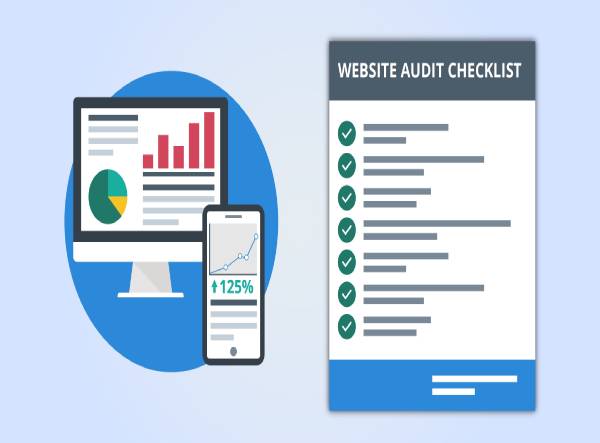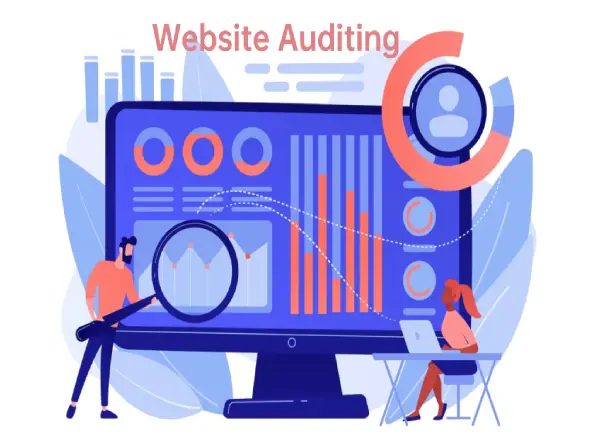In the fast-paced digital environment, website auditing plays a very important role. Due to higher user expectations than ever before, having a high-performance and user-friendly website is the key to success. In this article, we will explore the importance of website auditing, what it covers, how to conduct thorough auditing, avoid common mistakes, and the advantages of consulting a professional agency.
Why is Website Auditing so Important?
A website audit is like a health check on your online presence. Just as you would visit a doctor for regular checkups, your website needs a thorough assessment to ensure it’s operating at its best. Here are some key reasons why website auditing is important:

Identifying Issues: Regular website audits help identify various issues such as broken links, slow-loading pages, coding errors, and compatibility problems with different browsers and devices. By identifying these issues, you can take corrective actions to improve user experience and site performance.
User Experience (UX) improvement: The audit helps to evaluate the overall user experience of the website. A positive user experience is crucial for retaining visitors, reducing bounce rates, and encouraging users to spend more time on your site. An audit can identify navigation difficulties, confusing layouts, and other aspects that may hinder user satisfaction.
Search Engine Optimization (SEO): Auditing your website can reveal SEO-related issues such as poor keyword optimization, duplicate content, and improper use of meta tags. Addressing these issues can improve your site’s search engine ranking and make it easier for users to find your website through search engines such as Google.
Website Performance optimization: Audit can identify factors that affect website performance, such as large image files, unnecessary scripts, and slow server response time. By optimizing these elements, you can improve the loading speed of your website, which is crucial for retaining visitors and ranking higher in search engines.
Enhance Security: Website security is a top priority. Audits can uncover security vulnerabilities, outdated software, and potential entry points for hackers. By addressing these issues, you can protect your website and user data from unauthorized access and cyberattacks.
Content Quality and Relevance: Auditing helps assess the quality and relevance of your website’s content. Outdated or irrelevant content can have a negative impact on user engagement and search engine optimization. Regular reviews can help you identify what needs to be updated, refreshed, or removed.
Conversion Optimization: Audit can analyze the conversion path of your website and identify areas where users may abandon or not convert. By improving these elements, you can enhance your website’s ability to convert visitors into customers, subscribers, or potential customers.
What Does a Website Audit include?
A comprehensive website audit covers various aspects of your site to ensure it’s functioning optimally. It delves into technical, content, design, UX, and performance elements. By analyzing each of these areas, you gain valuable insights into what’s working and what needs attention.

Step-by-Step Guide to Conducting a Website Audit
1. Preparation
Before diving into the audit, gather all relevant data. Understand your website’s goals, target audience, and key performance indicators. This will provide a framework for your audit and help you measure success.
2. Technical SEO Audit
Start by examining the technical aspects of your website. This includes checking for broken links, optimizing URL structure, analyzing site navigation, and assessing mobile-friendliness and responsiveness. Technical SEO plays a significant role in search engine rankings and user experience.
3. Content Audit
Your website’s content is its voice. Evaluate the quality, relevance, and engagement level of your content. Identify outdated or duplicate content, optimize metadata, and ensure your content aligns with your audience’s needs.
4. Design and UX Audit
Design and user experience (UX) directly impact how visitors perceive your website. Evaluate the layout, readability, visual appeal, and ease of navigation. Make sure your design elements are consistent with your brand and enhance user engagement.
5. Performance and Speed Audit
A slow-loading website can drive visitors away. Analyze your website’s performance and speed using tools to identify bottlenecks. Optimize images, leverage browser caching, and minimize code to ensure quick page loading times.
6. Reporting and Developing an Action Plan
Compile all your findings into a comprehensive report. Highlight areas that need improvement and prioritize them based on their impact. Develop an action plan outlining the steps needed to address each issue.

Common Mistakes to Avoid During a Website Audit
While conducting a website audit, certain mistakes can hinder the accuracy of your assessment. Avoiding these pitfalls ensures that you gain clear insights into your website’s performance and potential areas for growth.
No clear goals: Before starting a website audit, you should have a clear understanding of the goals you want to achieve. Whether it’s improving SEO, enhancing user experience, or optimizing website speed, setting specific goals will help you focus on auditing.
Overlooking SEO issues: Search engine optimization (SEO) is essential to bring natural traffic to your website. Neglecting to address SEO issues such as broken links, missing meta tags, poor keyword optimization, and slow page speed can seriously affect the visibility of your website in search engine results.
Ignoring content quality: High quality, relevant, and up-to-date content is crucial for attracting users and maintaining a strong online presence. Neglecting to evaluate and improve your content can lead to poor user experience and a drop in search engine rankings.
Neglecting security issues: Security is crucial for maintaining user trust and protecting sensitive information. Failure to address security vulnerabilities such as outdated software, weak passwords, and lack of HTTPS encryption can lead to data leakage and user account damage.
Neglecting page speed optimization: Slow loading of pages can lead to high bounce rates and poor user experience. Analyze and optimize website page speed by compressing images, minimizing code, and utilizing browser caching.
Lack of a comprehensive audit checklist: A structured and comprehensive audit checklist helps to ensure that you cover all important aspects of your website. Without a clear checklist, you may miss key elements during the audit process.
Forgetting to monitor after changes: After implementing the changes according to the audit, continue to monitor the website’s performance, user feedback, and analysis to ensure that improvements produce the expected results.

The Benefits of Consulting a Professional Agency
Although DIY website auditing is valuable, consulting professional agency can bring rich professional knowledge. Professionals are well-versed in the latest industry trends, tools and technologies. They can provide an objective assessment, implement strategic changes, and help you achieve the maximum results from your website.
In short, website audit is a positive step in ensuring that your online image remains competitive and attractive. By comprehensively evaluating the technology, content, design, user experience, and performance elements of your website, you will discover opportunities for enhancement and unleash the full potential of the website.










